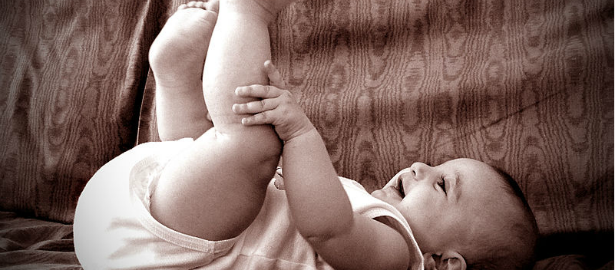By Derek Thompson
Demographics are economics.
One way to think about the Great Recession is like a great pause button. In normal times, millions of people get married in their mid-to-late 20s. They spend lots of money on a wedding. They buy a car, often with a loan. They buy a house, always with a loan. They buy new furniture and appliances. With their time and money coupled, expenses that were once extraneous now feel reasonable. Maybe he was individually satisfied with sports bars and she with Netflix, but as a couple, it makes more sense to watch live sports and TV shows on their new couch, and so they buy cable. They have a kid, or more than a few. You know how the story goes.
DELAY, DELAY, DELAY
Before the Great Recession, young people were already saving many of these activities for later in their lives. The share of young adults (18-29) who were married fell from 59% to 20% between 1960 and 2010. These couples bought houses later, too. “A decline in the incidence of marriage mechanically lowers home ownership,” Martin Gervais and Jonas D.M. Fisher wrote in their paper”Why Has Home Ownership Fallen Among the Young?”
In the last few years, young people have even more reason to delay the costly trappings of adulthood. Pinned between rising student debt behind them and scant job opportunities before them, 34%moved back home for a period of time. With access to their parents’ garage, they needed (and could afford) fewer cars of their own. Young people now account for a smaller share of total auto purchasesthan they did just a few years ago. It all leads to babies. Or, more specifically, not babies. In February this year, a Pew survey found that more than one-in-five young adults between 18 and 34 have delayed having a kid because of the economy — roughly the same proportion that postponed marriage. “Americans have had fewer babies each year since 2008, Bloomberg News reported yesterday. “Births [fell] to a 12-year low in 2011,” leading to the smallest population gain since World War II.
For a couple, pushing the pause button on weddings, houses, cars, and children is utterly sensible. (Look at the economy, after all.) But for the economy, itself, it’s disastrous. Household formation multiplies consumer spending. Cars and houses determine recoveries: These two industries accounted for 30% of the 1980s recovery and barely 10% of this one.
Babies aren’t often lumped into the same category as autos and homes, but as a driver of spending, they’re nearly as important. The annual cost of having a child in the northeast with a household income between $70,000 and $100,000 is about $17,000 a year, according to the U.S. government. That makes the typical child and the median monthly mortgage payments basically the same.
COME BACK, KIDS
If history serves as precedent, there’s reason to hope the babies will return with the economy. ViaBloomberg: The number of children per family fell to 2.3 on average in 1933 from 3.5 in 1900, according to the U.S. Centers for Disease Control and Prevention. It rebounded to as many as 3.7 in the 1950s, then began to decline again with the advent of modern contraceptives, stabilizing at about two children in 1972, government data show.
Mark Zandi, chief economist at Moody’s, said he expects “significantly pickup” in birthrates in the second half of this decade as the economy recovers and unemployment continues to fall. We should hope he’s right. Demographics are economics. The advanced countries with the worst demographics problem and the advanced countries with the most uncertain economic futures are often the same. High social spending promised to aging generations that aren’t supported by enough young workers leads to the kind of debt crises, economic stagnation, and political upheaval that we can see sweeping Europe — and might yet lie ahead for a country like Japan. This is ironic, in a way. Two centuries ago, Malthus said that growing populations would tax growing economies. In fact, it’s stagnating populations that constrain economic growth in rich countries.
The developed world is graying, whether we have babies or not. But if we want to have people to pay for them in the future — and a reason for families to spend today — we ought to care about the dearth of little people.
Copyright © 2012 by The Atlantic Monthly Group. All Rights Reserved.
See online: Bye-Bye, Boomers: This Is the Age of the Baby Bust-ers

